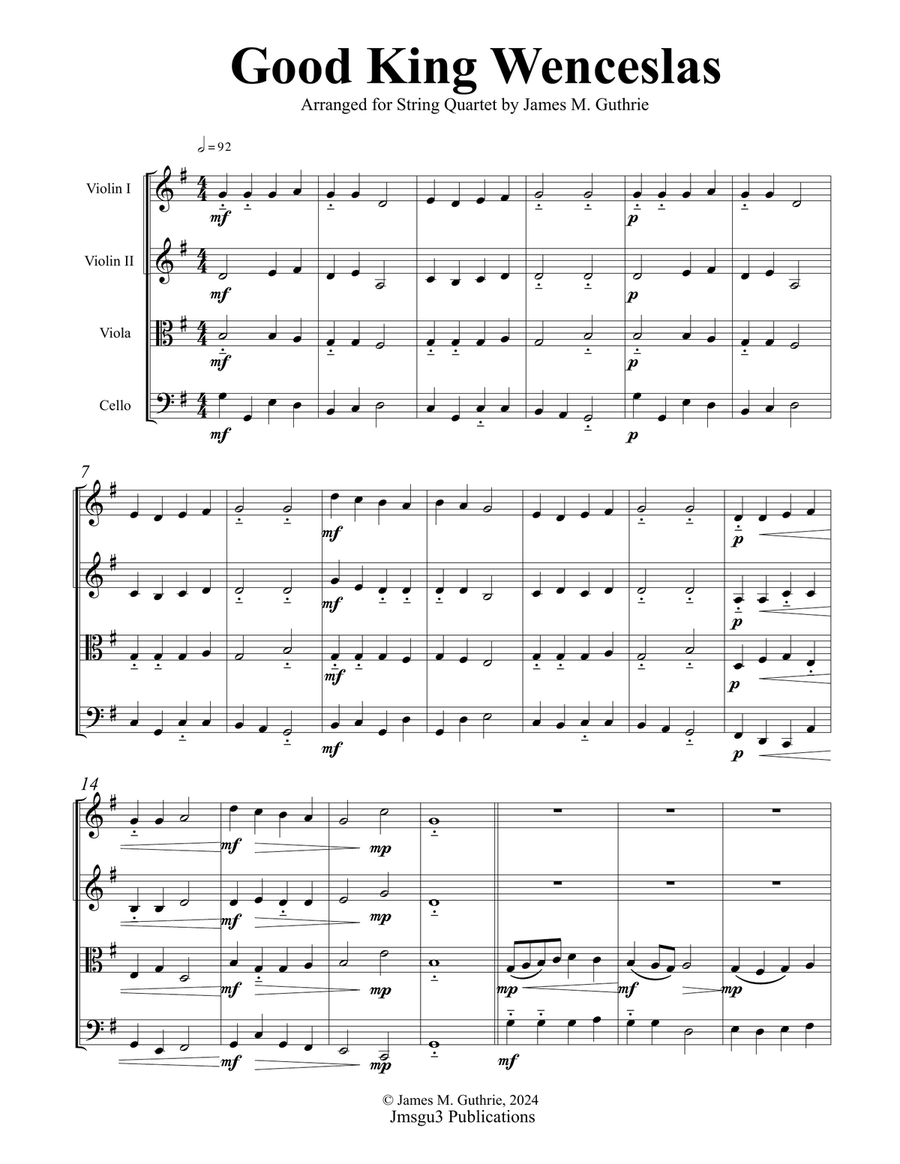String Quartet Cello,String Quartet,Viola,Violin - Level 4 - Digital Download SKU: A0.1491194 Composed by Traditional. Arranged by James M. Guthrie. Chamber,Christmas,Historic,Holiday,Traditional. 20 pages. Jmsgu3 #1067931. Published by jmsgu3 (A0.1491194). Good King Wenceslas is a well-known Christmas carol that narrates the story of a kind-hearted ruler who braves winter weather to help a poor peasant. The carol is inspired by the historical figure of Saint Wenceslas I, Duke of Bohemia, who lived from approximately 907 to 935 AD. Although he is referred to as a king in the carol, he was a duke during his lifetime; the title of king was conferred upon him posthumously by Holy Roman Emperor Otto I.Historical ContextWenceslas was born into a Christian family and raised primarily by his grandmother, Ludmila, who significantly influenced his faith. His mother, Drahomíra, was aligned with paganism and ultimately had Ludmila murdered to gain power. Upon becoming Duke at 18, Wenceslas sought to promote Christianity and was known for his charitable acts, especially towards the poor and marginalized. His reign was marked by efforts to end religious conflicts and to build churches, including part of what is now St. Vitus Cathedral in Prague. However, his commitment to Christianity and his benevolent nature made him a target for his jealous younger brother, Boleslav, who ultimately conspired to murder him in 929 or 935 AD.The CarolThe carol Good King Wenceslas was written in 1853 by English hymn-writer John Mason Neale, set to a melody from a 13th-century spring carol. It was designed to encourage Christian charity, particularly during Christmas, and is traditionally sung on the Feast of Stephen, December 26. The lyrics depict Wenceslas and his page witnessing a poor man gathering firewood and deciding to help him by bringing food and supplies. This story reflects the historical Wenceslas's reputation for generosity and compassion, which has led to his veneration as a saint and the patron saint of the Czech Republic. His legacy is celebrated in the Czech Republic, where he is known as Václav, and he is commemorated on September 28, known as St. Wenceslas Day.Cultural SignificanceThe carol has become a staple of Christmas music in the English-speaking world, performed by various artists and choirs. It serves not only as a festive song but also as a reminder of the values of charity and kindness, echoing the life and virtues of the historical Wenceslas.
